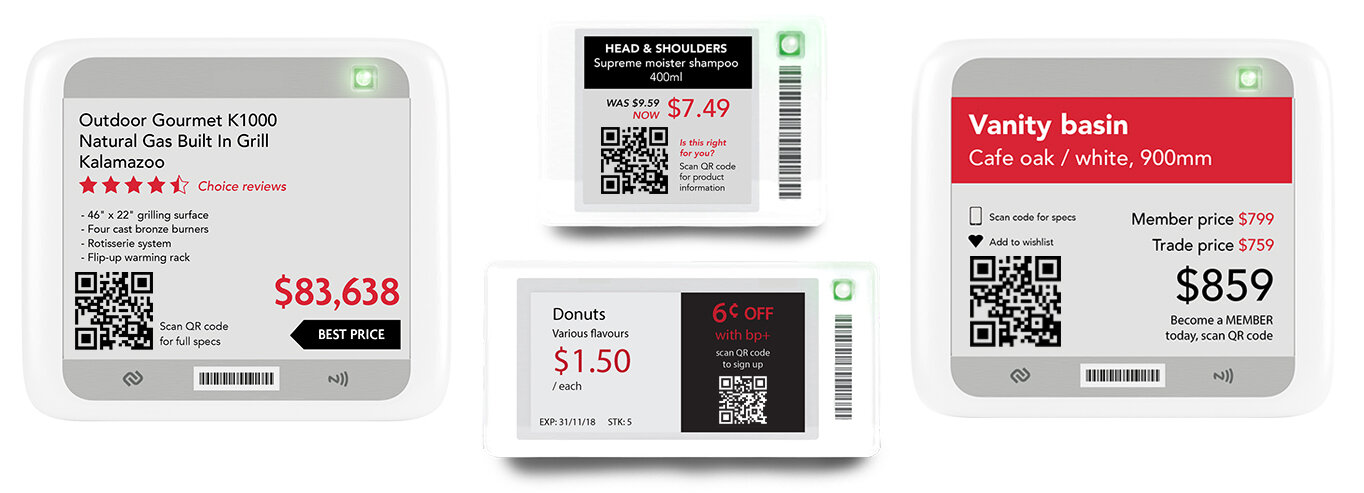7 Key Benefits of Electronic Shelf Labels
What are the benefits of Electronic Shelf Labels? Well, the most obvious one is the ability to be able to change prices automatically, even remotely. You can literally roll out new prices and promotional offers to all products in-store, at the touch of a button, from your home or head office location (or of course from the shop itself, if that’s your preference). Amazing really when you think about all the time that goes into printing new price tickets and changing them at the shelf edge.
But it doesn’t stop there, being able to change prices digitally has all sorts of effects on a retail business. And in addition, electronic shelf labels (or digital price tags as they’re often called), have other features, like LED lights, that are designed to help additional in-store processes.
The below infographic breaks down the 7 key benefits of electronic pricing, in an easily digestible format.
1. Reduced labour
Prices are changed digitally (even remotely), with no assistance from staff on the shop floor.
Order picking and restocking can be implemented quicker, using flashing LED lights on the labels to guide staff to the correct products.
2. Margin optimisation
ESLs enable an agile pricing strategy, where prices on 1 or all products can be changed as frequently as required. This keeps margins consistent against fluctuations in currencies and wholesale price changes.
Automated price-drops for perishable items, help optimise sales.
3. Product marketing
Showing ratings and reviews on the label screen increases sales conversions in-store.
QR codes direct customers to product specs, user guides and product comparisons.
QR codes can also enable online functions like ‘Join membership club’, or saving a product to your project or wishlist, to review and purchase later.
Different uses of QR codes on electronic shelf labels / digital price tags:
Example 1 uses 3rd party ratings to validate the product quality, shows 'Best price' informing customers that there's no need to shop around, and uses a QR code to direct customers to the full product specs.
Example 2 uses a QR code to help customers find out if the product is right for them.
Example 3 calls out that members receive a 6c discount, then uses a QR code to direct customers to join the membership club.
Example 4 shows 3 tiers of pricing, then uses a QR code to direct customers to 'become a member' in order to access member pricing.
4. Promotions
You can run more promotions with agile pricing. You can even counter competitor promotions within minutes.
Never miss a brand promotion because you can’t execute the offer.
Tailored promos delivered at the shelf edge based on purchasing data.
5. Accuracy
Backend data is synchronised with the shelf edge, so that product prices are always accurate. This is managed via a system integration and runs automatically.
Compliance is assured.
A true omni-channel strategy can be achieved.
Reporting shows label update status and other stats so head office can track progress.
6. Customer experience
QR codes give customers access to more product information, special offers, 'Save to wishlist' functions and more. Creating an innovative and functional in-store experience.
Way-finding can be used to guide customers to products.
Staff are freed up to advise customers.
7. Efficient operations
Staff-facing screens show backend data at the shelf edge.
LED flashing lights on the label screens assist staff in, restocking, installing promo signage and Click & Collect order picking.
Electronic shelf labels are an energy-saving solution, environmentally friendly and economical.


